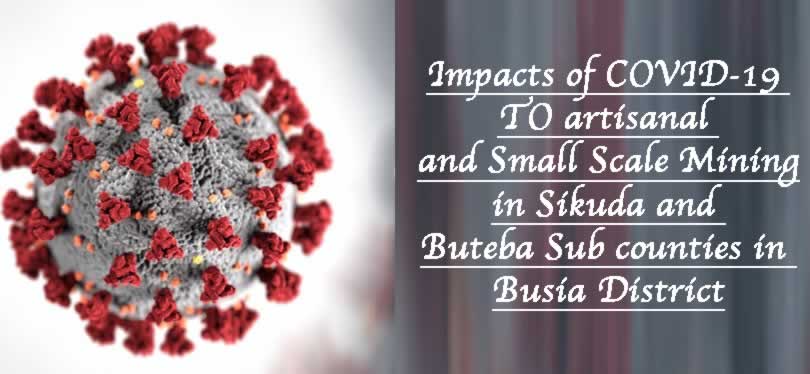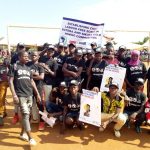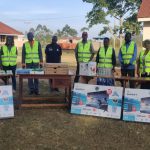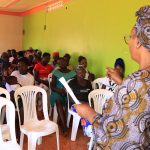In Uganda, as a means to prevent the spread of COVID 19, the government closed all the learning institutions for a period of one month from 18th of March, and if all goes as planned, institutions may to resume on 27th April. However, the Government is overseeing the situation with regular briefings, and will pronounce himself about any actions to open schools and other institutions of learning.
Besides, all travels were banned both private and public means except Cargo carriers from 1st April to 14th April 2020, No any kind of gathering including church services with exceptional cases on burials (involving only close relatives) and individual social distance has to be kept 3-4 feet and other measures. Now we are in lockdown for 14 days since 1st April 2020. Everyone in Uganda has to follow and adhere to these guidelines in the fight to stop the spread of the virus. Therefore, we cannot continue with our regular activities that involve physical contacts like the VSLAs, motivation Centre, meetings and others. The Government is watching the situation closely, and will only make a decision to allow the public to start normal life when they are absolutely sure that there is no danger of spreading Covid-19.
Accordingly, Artisan and Small scale mining in Busia as an economic activity is greatly affected since it involves gathering and hence prompting non-compliance to the directives. Moreover, formal/legal mining operations has stopped but anything is expected in the mining community from a disobedient point of view since it is artisan in nature. Nevertheless, now it is the Police and the Law Enforcement Units making sure that every Ugandan follows the directives given by State. We are hopeful that spread will stop sooner and institutions and normal activities resume.
As part of the Responsible Gold project team, we can only communicate via phone calls to talk to some few people getting the feedback about the situation and encouraging them to follow the guidelines given by the state. .
The main objective of this brief study, is therefore, to assess the impact of COVID-19 in artisanal and small-scale mining in Tiira and Amonakakinei mining communities in Skiduda and Buteba sub-counties in Busia district. The study was conducted on 09th April 2020 from three local stakeholders in in the mine catchment area. The information is captured from a local council leader’s, teacher’s and miner’s perspective via mobile phone calls. The key areas target in this study are; [1] mining operations, [2] families and [3] the Community.
Impacts
Following the government guidelines to prevent the spread of COVID-19, mining operations have stopped, and all the formal mines are closed because mining operations would clearly prompt non-compliance to the guidelines given by the State to prevent the spread of COVID-19.
This temporary closure has moved the mine owners to lay off workers, and the only operations being done is pumping water out of the pits as a maintenance operation. The closure of border, restrictions on transport, and the lockdown has limited the access to markets for gold leading to 40% reduction in local gold price since the transport ban limits access to Kampala market. Intermediaries buyers are taking this opportunity to exploit miners. The local gold price is strangest now because normally, low production and scarcity of gold would lead to increase in price but now the scarcity in the product has led to reduction in price, which is a major setback for people with gold. Moreover, mining owners are skeptical about how they will cover the obligation of payment for Royalties and other taxes levied on mining companies. It is not known whether the government will make exemption of this lockdown period for the miners.
Most of them depend on mining, few people practice agriculture and very few families are sustained by formal employment. This means they are challenges in the daily up-keep and feeding. Considering that children are now all back from school, the feeding habit has to change from single meal per day to at least two meals a day since people are at home fulltime. There is a possibility of future loss of jobs if the situation persists because for informal employment without binding agreement, it is daily attendance that matters. The response is proposed that families must embrace savings schemes, and diversify sources of income through practicing alternative to mining. Education sector in rural setting has been affected greatly. There is expected possibility of poor performance, and parents are scared on how they will manage to afford school payments.
There is also a learning point from this lockdown for example; this period has created time for parents and children to bond because parents are not out working, neither are they allowed to be in bars and social gatherings. Most parents would not give time to their children and watch them grow, or even teach them a few things at home, but now they are all at home and therefore some parents are taking time to teach children. In addition, couples are getting time to enhance their relationship and be good role models to the children. In the community, the social distance, closure of bars and control on movement at night has minimized on immoral acts which is common in mining communities. On the negative side, it has also increased domestic violence for a few couples.
Conclusions and recommendations.
COVID-19 effects on artisanal and small-scale mining operation is mainly of economic nature and, thus mining community have reduced earnings.
With the current invasion of locusts in some parts of Eastern Uganda, famine is a possibility and people in Busia should take advantage of the rains to grow both domestic and cash crops like maize, beans, millet and cassava.
Busia Community needs to embrace diversification for income sources and to practice good financial management skills.
Parents are learning to associate with their children and couples’ relationships are being enhanced.





